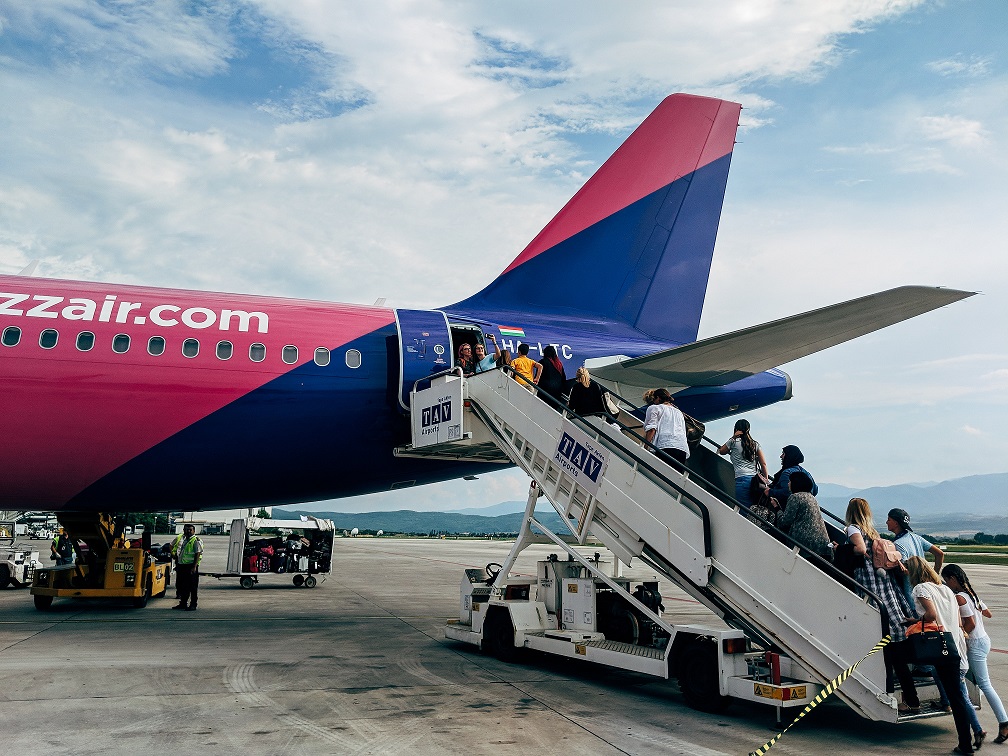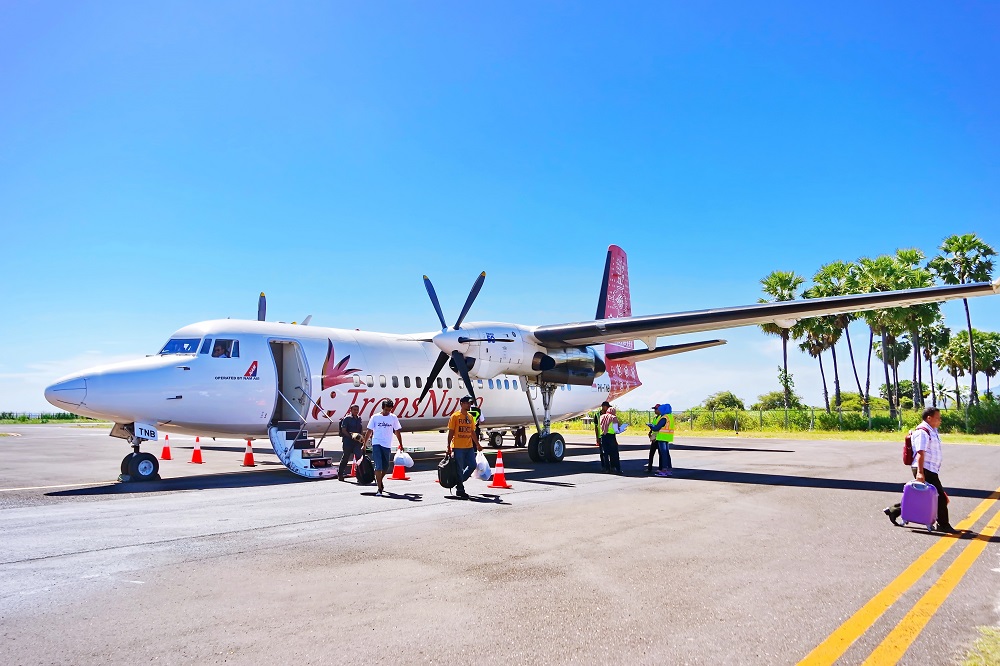
Travel insurance is an investment in your travel experience, ensuring you can enjoy your trip worry-free, even when unexpected issues arise. Imagine yourself at the airport, passport clutched tightly, a heart pounding with excitement, and a ticket to adventure in your hand. Little do you know, the universe has other plans for your trip, and what’s about to unfold will be a travel tale filled with unexpected twists, hilarious mishaps, and the kind of adventure you can’t plan for. So, buckle up, because this journey is about to take you on a rollercoaster ride of laughter, frustration, and ultimate travel redemption!
Embarking on a journey, whether it’s a short weekend getaway or a grand international expedition, is an exciting prospect. Amid all the excitement and anticipation, there’s one crucial element that often gets overlooked but should never be underestimated: travel insurance.
Travel Insurance Is Not Just a Smart Choice

Here’s why travel insurance is not just a smart choice, but an essential one:
Unexpected Mishaps
Life is unpredictable, and so is travel. From flight cancellations due to bad weather, lost luggage, or even a sudden illness during your trip, unforeseen events can turn your dream vacation into a nightmare. Travel insurance acts as a safety net, offering financial protection when the unexpected happens.
Medical Emergencies
Health concerns can arise anywhere, and when they do in a foreign country, it can be both physically and financially daunting. Travel insurance covers medical emergencies, ensuring that you receive the necessary care without draining your savings.
Trip Cancellations
Sometimes, circumstances beyond your control may force you to cancel or postpone your trip. Travel insurance can provide reimbursement for non-refundable expenses, such as flight tickets, hotel bookings, and tour reservations, saving you from substantial financial losses.
Travel Delays
Flight delays and missed connections can disrupt your travel itinerary, leading to additional expenses. Travel insurance can compensate you for these inconveniences, covering expenses like accommodation, meals, and alternative transportation.
Emergency Evacuation
In extreme cases, such as natural disasters or political unrest, you may need to be evacuated from your destination. Travel insurance can cover the costs of emergency evacuations, ensuring your safety and peace of mind.
Lost or Stolen Belongings
Losing your passport, wallet, or other valuable items can be a nightmare when you’re far from home. Travel insurance can provide coverage for lost or stolen belongings, allowing you to continue your journey without undue stress.
Peace of Mind
Perhaps the most significant benefit of travel insurance is the peace of mind it offers. Knowing that you have financial protection in case of unexpected events allows you to fully enjoy your trip without worrying about what could go wrong.
Customizable Coverage
Travel insurance policies can be tailored to your specific needs and preferences, just like what other types of insurance can offer. Whether you’re an adventure enthusiast, a frequent traveler, or a family on vacation, there’s a policy that can provide the right level of coverage for you.
Travel Insurance Coverage Types

The specific types of coverage available can vary depending on the insurance provider and the policy you choose. Here are the most common types of coverage offered by travel insurance policies:
Trip Cancellation or Interruption Coverage
This coverage reimburses you for non-refundable trip expenses if you have to cancel your trip or cut it short due to covered reasons such as illness, injury, death of a family member, or unforeseen circumstances like a natural disaster. It typically includes expenses like airfare, accommodations, and tour fees.
Trip Delay Coverage
This coverage provides compensation for additional expenses incurred due to a covered trip delay. It can include expenses for accommodations, meals, and transportation during the delay.
Baggage and Personal Belongings Coverage
This coverage reimburses you for lost, stolen, or damaged baggage and personal items during your trip. It can also cover the purchase of essential items if your baggage is delayed for an extended period.
Emergency Medical and Dental Coverage
This coverage helps pay for medical and dental expenses incurred while traveling, including doctor visits, hospital stays, medications, and emergency medical evacuations. It’s crucial when your regular health insurance doesn’t provide adequate coverage abroad.
Emergency Medical Evacuation and Repatriation
This coverage arranges and covers the cost of transporting you to the nearest suitable medical facility or back home in case of a serious illness or injury while traveling.
Travel Assistance Services
Travel insurance policies often include a range of assistance services, such as providing travel information, helping with lost passports, arranging emergency cash transfers, and offering legal and translation assistance.
Accidental Death and Dismemberment (AD&D) Coverage
This coverage pays a benefit to your beneficiaries in the event of your accidental death or provides a benefit to you if you suffer a covered loss, such as the loss of a limb, while traveling.
Cancel for Any Reason (CFAR) Coverage
This is an optional add-on that allows you to cancel your trip for any reason and receive a partial reimbursement of your non-refundable trip expenses. Keep in mind that CFAR coverage typically comes with stricter eligibility criteria and higher premiums.
Rental Car Coverage
This coverage can reimburse you for costs associated with damage to or theft of a rental car during your trip.
Travel Supplier Default Coverage
This coverage protects you if a travel supplier, such as an airline or tour operator, goes out of business or defaults on its services.
Adventure or Hazardous Activities Coverage
If you plan to engage in adventurous or high-risk activities during your trip (e.g., skiing, scuba diving), you may need additional coverage, as these activities are often excluded from standard policies.
Pre-existing Medical Conditions Coverage
Some policies offer coverage for pre-existing medical conditions if certain conditions are met, such as purchasing the policy within a specified timeframe after booking your trip.
It’s essential to carefully review the terms, conditions, and exclusions of any travel insurance policy to ensure it meets your specific needs and provides adequate coverage for your trip. Consider factors like your destination, the length of your trip, and any unique circumstances that may require specialized coverage. Comparing policies from different providers and seeking guidance from a qualified insurance agent can help you choose the right coverage for your travel needs.
How to Choose the Right Travel Insurance

Choosing the right travel insurance policy is a critical step in ensuring a worry-free journey. With numerous options available, it’s essential to take the time to research and compare policies to find the one that best suits your needs. Here’s a breakdown of the key factors to consider when selecting travel insurance:
Research Is Key
Before diving into the specifics, understand that thorough research is the foundation of your decision-making process. Travel insurance isn’t a one-size-fits-all solution, and what works for one traveler may not be suitable for another. To make an informed choice, follow these steps:
Assess Your Needs
Start by assessing your unique travel needs. Are you planning a short domestic trip or an extended international adventure? Do you have pre-existing medical conditions? Understanding your requirements will help you narrow down your options.
Compare Policies
Research multiple insurance providers and compare their policies side by side. Pay attention to the types of coverage they offer and the terms and conditions associated with each.
Read Reviews
Look for customer reviews and testimonials online to gain insights into the experiences of other travelers with a particular insurance provider. This can provide valuable information about their customer service and claim resolution process.
Ask for Recommendations
Seek recommendations from friends, family, or fellow travelers who have had positive experiences with travel insurance. Personal recommendations can be especially helpful.
Factors to Consider
When evaluating travel insurance policies, focus on the following key factors:
1. Coverage Limits
Coverage limits refer to the maximum amount an insurance policy will pay out for a specific type of claim. Consider the following:
- Ensure the policy provides sufficient coverage for medical emergencies, including hospitalization, surgeries, and evacuation, especially if you’re traveling to destinations with high healthcare costs.
- Check the maximum reimbursement amount for trip cancellations or interruptions, which may cover non-refundable expenses like flights and accommodations.
2. Premium Costs
The premium is the amount you pay for the insurance policy. Balance your budget with the coverage you need:
- While it’s tempting to opt for the cheapest policy, ensure it still meets your essential coverage requirements.
Value for Money - Consider the cost in relation to the coverage offered. Sometimes, paying a slightly higher premium can provide significantly better protection.
3. Deductibles
Deductibles are the out-of-pocket expenses you must pay before the insurance coverage kicks in. Understand how deductibles work:
- A policy with a higher deductible usually has lower premiums. Evaluate your risk tolerance and financial capability when choosing between high or low deductibles.
4. Policy Exclusions
Thoroughly read the policy’s fine print to identify any exclusions. These are situations or events that the insurance won’t cover. Common exclusions may include:
- Determine how the policy treats pre-existing medical conditions, as some may exclude them or require additional coverage.
- If you plan to engage in adventure sports or activities, make sure the policy covers them. Some policies exclude high-risk activities.
5. Reputation of Insurance Providers
Consider the reputation and track record of the insurance provider:
- A reputable and financially stable insurer is more likely to honor claims and provide timely assistance.
- Research the provider’s customer service quality, including response times and ease of communication.
By carefully evaluating these factors, you’ll be well-equipped to choose the right travel insurance policy that aligns with your travel plans and provides the peace of mind you need while exploring the world. Investing time in research now can save you a lot of stress and expense in the future.
Purchasing Travel Insurance

Purchasing travel insurance is a crucial step in ensuring a smooth and secure journey. The process can be somewhat intricate, involving decisions about when to buy, where to buy, and what to buy. In this section, we’ll delve into these aspects to help you make an informed decision about purchasing travel insurance.
When to Buy Travel Insurance
Timing is essential when it comes to buying travel insurance. The ideal time to purchase a policy depends on various factors:
Early Booking
It’s generally recommended to buy travel insurance soon after you’ve made your initial trip payments. This can include booking flights, accommodations, or tours. By doing so, you ensure coverage for unforeseen events that might cause you to cancel or interrupt your trip.
Time-Sensitive Benefits
Some travel insurance plans offer time-sensitive benefits, such as coverage for pre-existing medical conditions or the “cancel for any reason” option. These benefits typically have eligibility requirements, including purchasing the insurance within a specified timeframe from your initial trip deposit.
Last-Minute Travel
If you’re booking a trip at the last minute, you should still consider purchasing travel insurance. While some coverage options may be limited, you can still get protection against unexpected events during your journey.
Annual Policies
If you’re a frequent traveler, you might consider an annual travel insurance policy. This can provide continuous coverage for all your trips throughout the year, eliminating the need to buy insurance for each individual journey.
Booking Through Travel Agencies: Pros and Cons
Many travelers purchase travel insurance through travel agencies or tour operators. Here are the pros and cons of this approach:
Pros:
Convenience
Booking insurance through the same agency or operator streamlines the process, and you may not need to research and compare policies on your own.
Package Deals
Travel agencies often offer package deals that include insurance, making it easy to bundle the cost with your trip expenses.
Expert Assistance
Travel agents can provide guidance and answer questions about the insurance coverage, making it easier to understand what you’re purchasing.
Cons:
Limited Options
Travel agencies typically offer a limited selection of insurance providers and policies. This can limit your ability to find the most suitable coverage for your needs.
Potentially Higher Costs
The insurance offered through travel agencies may be more expensive than what you can find by shopping around and comparing policies directly from insurance providers.
Commission-Based Sales
Keep in mind that travel agents may earn commissions from insurance sales, potentially creating a conflict of interest. Always ensure that the recommended policy meets your specific needs.
Online Options: Purchasing Directly from Insurance Providers
Buying travel insurance directly from insurance providers offers more control and flexibility. Here’s how you can go about it:
Research Multiple Providers
Start by researching and comparing travel insurance providers online. Visit their websites to review their policy options, coverage details, and prices.
Get Quotes
Many insurance providers offer online quote generators. Fill out the required information about your trip, such as destination, duration, and coverage preferences, to get a personalized quote.
Read Reviews
Look for customer reviews and ratings of the insurance providers. This can provide insights into their reputation and customer satisfaction.
Review Policy Details
Carefully review the policy documents, terms, and conditions before making a decision. Pay attention to coverage limits, exclusions, and any optional add-ons.
Purchase Online
Once you’ve chosen a suitable policy, you can usually complete the purchase process directly on the insurance provider’s website. Be prepared to provide personal and trip-related information.
Documentation
After purchase, save copies of your policy documents, confirmation emails, and contact information for the insurance provider in case you need to make a claim or contact them during your trip.
Purchasing travel insurance online directly from providers gives you more control and allows you to tailor your coverage to your specific needs. It also often results in more competitive pricing. It requires a bit more research and effort on your part compared to booking through a travel agency.
By considering the timing of your purchase and weighing the pros and cons of different purchasing methods, you can make an informed decision and ensure that you have the right travel insurance coverage for your next adventure.
Making a Travel Insurance Claim

While no one wants to think about things going wrong during their travels, it’s essential to be prepared for unexpected situations. Travel insurance can provide peace of mind, but it’s equally important to know how to make a claim when the need arises. In this section, we will explore the process of making a travel insurance claim, including the importance of documentation, how to contact your insurance provider, and common reasons for claims.
The Key to a Successful Claim is Documentation
Documentation is the backbone of any travel insurance claim. The more thorough and organized your records are, the smoother the claims process will be. Here’s why proper documentation is crucial:
Proof of Loss
Documentation serves as evidence to support your claim. It proves that you suffered a loss or incurred expenses due to an unforeseen event.
Claim Validation
Insurance providers rely on documentation to validate your claim. Without it, your claim may be delayed or denied.
Reimbursement
Proper documentation ensures you receive the maximum reimbursement for covered losses. It helps calculate the exact amount you’re entitled to.
To ensure you have the necessary documentation:
- Save receipts for expenses related to your trip, such as flight tickets, hotel bookings, restaurant bills, and activity reservations. These will be essential for claims related to trip cancellation, interruption, or delays.
- If seeking reimbursement for medical expenses, retain all medical records, bills, and prescriptions. These documents should clearly show the diagnosis and treatment received.
- In cases of theft, vandalism, or accidents involving a third party, file a police report and keep a copy. This can be crucial for claims involving stolen or damaged belongings.
- Maintain a copy of your travel itinerary, including dates and times of flights or reservations, as this can serve as proof of your travel plans.
Contacting the Provider is a Part of the Claims Process
When you encounter a situation that requires you to make a travel insurance claim, follow these steps to initiate the process:
Step 1. Contact your insurance provider as soon as possible. They will guide you on the specific steps to follow and the documents required.
Step 2. Request the necessary claim forms from your provider. These forms will outline the information you need to provide and the documentation required.
Step 3. Fill out the claim forms accurately and honestly. Any inaccuracies or omissions could lead to delays or denials.
Step 4. Include all required documents with your claim forms. Be organized and ensure that your documentation is clear and legible.
Step 5. Make copies of all documents you submit and any communication with the insurance provider. This serves as a backup in case anything is lost.
Step 6. If you don’t receive a response within a reasonable timeframe, follow up with the insurance provider. Keep records of your communications.
Common Reasons for Claims
Travel insurance can provide coverage for a wide range of unforeseen events. Here are some common situations where travelers often make claims:
- Claims may be made when a trip is canceled due to illness, injury, or death of the traveler or a family member, natural disasters, or other unforeseen events.
- Medical claims cover expenses incurred due to illness or injury during the trip, including hospitalization, medical treatments, and emergency evacuation.
- Claims can be filed for lost, stolen, or damaged luggage, as well as for essential items purchased due to baggage delays.
- Travel insurance may reimburse you for expenses incurred due to flight delays, missed connections, or other travel interruptions.
- In cases of serious illness or injury, travel insurance can cover the costs of emergency medical evacuation to a suitable medical facility.
- Claims related to theft or vandalism of personal belongings, such as passports, electronics, or jewelry, can be filed with the appropriate documentation.
- If you are involved in an accident with a third party, such as a car crash, and incur medical expenses, your insurance may cover these costs.
Understanding the common reasons for claims can help you anticipate potential situations during your trip and ensure you have the necessary coverage. It’s essential to review your policy carefully and know the specific terms and conditions related to each type of claim.
Tips
In essence, travel insurance is not an expense but an investment in your well-being and the success of your trip. It ensures that you can focus on creating memorable moments and exploring new horizons, knowing that you’re prepared for whatever twists and turns your journey may take. So, before you set off on your next adventure, remember that travel insurance is your passport to worry-free exploration.








